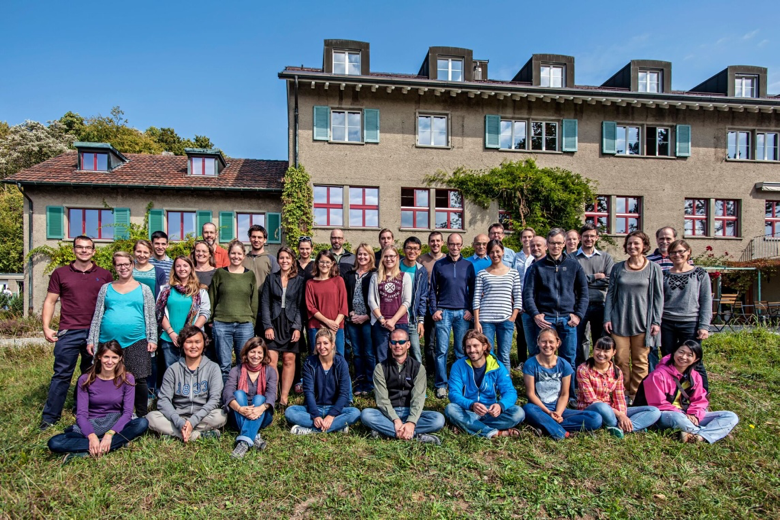University of Zurich Research Priority Program on “Global Change and Biodiversity”: An integrative approach to understand the world’s most pressing challenges
By: Alejandra Parreño and Debra Zuppinger-Dingley (CEESP members)
Global change refers to drivers (pollution, climate change, land use change, invasions, and exploitation) with either natural or anthropogenic origin, which affect the Earth and its capacity to sustain life. The University of Zurich Research Priority Program “Global Change and Biodiversity” aims at understanding and predicting global change drivers, their effects and feedbacks on biodiversity, ecosystem services and human well-being across scales. We are a group of 40 researchers spanning natural and social sciences, working on systems distributed along a latitudinal gradient ranging from Siberia (Kytalyk), to the Tibetan Plateau (Haibei), Switzerland (Laegern and Lake Zurich), Borneo (Sabah and Sarawak) and the Seychelles (Aldabra Atoll).

Photo: Alejandra Parreño
We address challenges using innovative and diverse approaches while promoting the participation of a wide range of stakeholders. For example, in the Arctic, temperature is rising twice as fast as in the rest of the world, with major impacts on terrestrial ecosystems and their services that sustain the native human population. Combining experiments, observations, and modelling, we investigate how changes in biodiversity, land surface energy budget and permafrost thaw in vast Siberian tundra landscapes, feed back to global change. The perception that local people have of global change is assessed through interviews. Such changes, as well as new fishing regulations, are found to negatively impact the livelihood of the local populations through the degradation of provisioning and cultural ecosystem services. In a comparative study in a temperate forest in Switzerland, we perform landscape-level biodiversity studies to understand changes of functional diversity and their impact on ecosystem services, such as climate regulation and food supply. At the Lake of Zurich, Switzerland we use small-scale micro-cosmos in laboratory together with large-scale observations in the lake to predict how climate warming affects seasonal dynamics of phytoplankton in aquatic ecosystems. In our Borneo study sites, we are committed to study the role high diversity plays in supporting functionality and stability of tropical rainforests. Here we run several projects including biodiversity studies, the ecological genomics of phenology, quantification of ecosystem services and governance of the rainforest. Overall, we believe that many of the limitations we have in our ability to predict, mitigate and adapt to global change can be reduced by the study of feedback mechanisms at different scales. Our cross-site projects assess this issue at a regional scale, by linking datasets along a latitudinal gradient, and at a larger scale, by using globally continuous temporal data to analyze vegetation productivity hotspots. For more information on our research, please visit our website: http://www.gcb.uzh.ch
In September of this year, we will be hosting a poster session at the IUCN World Conservation Congress in Hawaii (session n°9858). With our poster we aim to: a) highlight the need for more integrative, culturally diverse and trans-disciplinary research projects, b) showcase our project internationally so others can benefit from our experience, c) connect with other scientists engaged in data sharing complementary efforts, d) reach out to a broader group of stakeholders, policy makers and the general public with new questions, challenges and solutions; creating new dimensions to our work. We encourage all of you at IUCN 2016 to visit our poster and get connected!
Alejandra Parreño and Debra Zuppinger-Dingley, IUCN WCC speakers on behalf of The URPP Global Change and Biodiversity Team
We would like to thank the Steering Committee of the URPP GCB for their support in our activities, particularly Owen Petchey, Bernhard Schmid and Michael Schaepman. A special mention to Michael Schaepman and Gabriela Schaepman-Strub for the editorial corrections to this article and everyone at the URPP GCB for their contributions.
